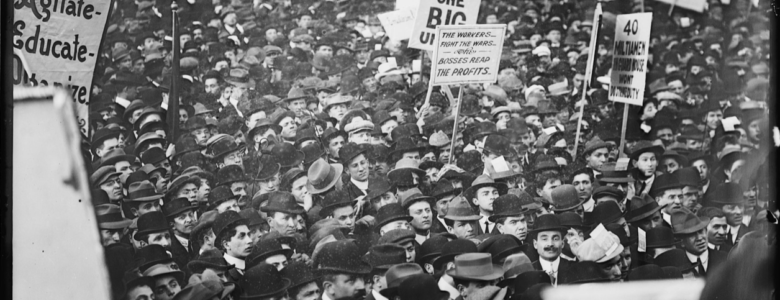
New EU resolution: how anti-fascism and fascism became the same thing
The EU Parliament overwhelmingly passed a joint resolution which is paving the way to demonizing the progressive Left in an attempt to equate fascists to those who fought against them.
On September 19, nine members of the European Parliament, on behalf of the Renew Group (former Alliance of Liberals and Democrats for Europe, ALDE, now merged with Macron’s “Renaissance“), made a motion for a resolution which was adopted the same day by the European Parliament – with the votes of the People’s Party, the Social Democrats, the Liberals, the Greens and the Conservative Reformists. The foreword of this motion says that it aims “to wind up the debate“ on “the importance of European remembrance for the future of Europe“. The resolution stresses “the importance of keeping the memories of the past alive, because there can be no reconciliation without remembrance, and reiterates its united stand against all totalitarian rule from whatever ideological background“. And it calls on “all EU Member States to commemorate 23 August as the European Day of Remembrance for the victims of totalitarian regimes“.
This may all sound legit – but its false premises and potentially dangerous outcomes might require a whole book to analyse. It can be summed up in one simple sentence: it is an attempt to equate fascists to those who fought against them.
Written in masterfully perfected language of European bureaucracy, it rewrites the past, the present, and the future of the continent. The how and why of the matter is key in understanding the TINA logic of a seemingly strange coalition of European establishment and the far-right.
The backbone of this resolution is historical revisionism, that we have been witnessing all over Europe (and beyond) for decades. Its main focus is the history of the Second World War and the postwar period. The upsurge of historical revisionism is particularly strong in former socialist countries where the justifiable condemnation of Soviet violent expansionism is used to stigmatise communism, as well as other socialist and leftist ideas, and rehabilitate collaborators of the Nazis in WW2. In these cases of whitewashing history, there are intentional omissions of crucial facts: for instance, that those who opposed Soviet invasions in Hungary in 1956 and Czechoslovakia in 1968 were communists themselves, or that, in case of socialist Yugoslavia, it wasn’t part of the Warsaw pact, to begin with.
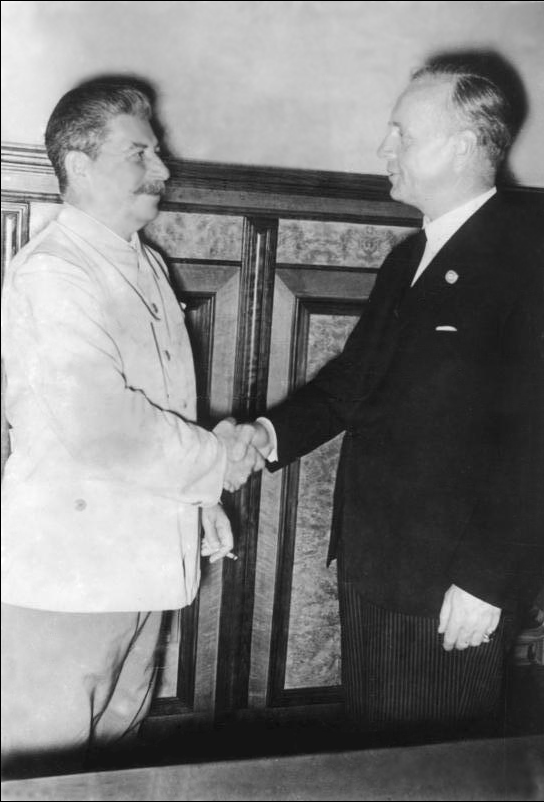
German-Soviet non-aggression pact
The new EP resolution uses the abominable Hitler-Stalin or Molotov-Ribbentrop (their foreign ministers) non-aggression pact as its starting point, giving it a curious twist: it explicitly says that the pact “paved the way for the outbreak of the Second World War”.
Does that mean that what Hitler was doing until that point was just fine? Persecution of Jews, annexations of Austria and Czechoslovakia, atrocities of the Spanish Civil War, were all just minor incidents that in no way paved the way to the outbreak of the war?
Like in every case of historical revisionism, important omissions follow statements based on half-truths, such as the omission of the Munich Agreement, signed by Nazi Germany, Fascist Italy, France and the United Kingdom, that paved the way to Nazi annexation of Czechoslovakia, or the Anglo-German Declaration of non-aggression that immediately followed it; or the lack of support for the antifascists in Spanish civil war from western democracies – the attempt at so-called “appeasement” of Nazi Germany. The resolution does not say that the initial pact between Nazi Germany and Japan signed in 1936 (later joined by Italy, Spain and several Nazi and Japanese puppet-states) was named Anti-Comintern Pact, stating communism as the main enemy of fascist forces. None of these facts exempt the Soviet Union from the responsibility for the Molotov-Ribbentrop pact.
But we do not see resolutions about the responsibility of liberal capitalism for the outbreak of WW2.
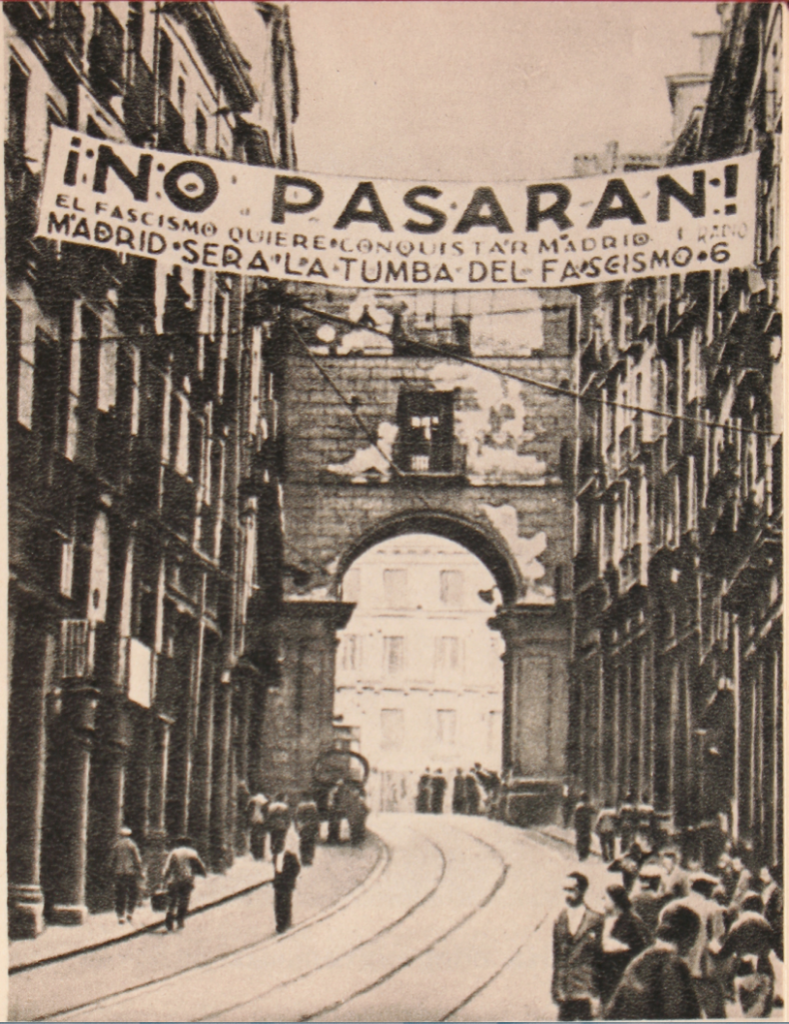
The other main point of the Resolution, related to and stemming from revisionism, is the insistence on the victims of “totalitarian regimes”, naming explicitly Stalinism and Nazism, but using Stalinism and communism interchangeably, like in the statement that “the Nazi and communist regimes carried out mass murders, genocide and deportations and caused a loss of life and freedom in the 20th century on a scale unseen in human history”. Equating racially-based genocides of the Nazi regimes with Stalin’s undeniable murders and mass incarcerations of political enemies is at least as problematic as ascribing Stalin’s crimes to communism. Equating ideology that has equality as its main goal with the one that advocates racial purity and genocide is logically untenable and hypocritical.
The only ideology, besides Nazi-fascism, that throughout the 19th and much of the 20th century used racism as a way to justify its crimes, was capitalism. Countless crimes – mass murders, genocide, and deportations – were committed, based on ideas of social Darwinism and inferiority of African, Asian, or Native American populations, all in the name of progress and gaining capital in the age of imperialism.
But its victims were (mostly) not European. Even today, the death toll of the battle for profit is rising every day, especially (but not exclusively) in Third World countries. Yet, there are no days or monuments commemorating victims of capitalism, even though the relation between the crime and the ideology is much easier to prove than that between Stalin’s crimes and communism.
Virtually no leftists – be they communists, social-democrats, anarchists, democratic socialists or any other kind – deny or whitewash the crimes of Stalinism, or take Stalin’s Soviet Union as their role model. So where does this need to condemn communism come from? One of the reasons is the renewed cold war against Putin’s Russia, reflected in the calling “on Russian society to come to terms with its tragic past”. Indeed, Putin’s administration has used invocations of Stalin’s times as the age of national strength, but never referring to communism. Stalin himself did not use the appeal of communism, but that of nationalist and imperialist sentiment, to mobilize the population for annexations of parts of Poland and the Baltic states. Regardless of its authoritarian regime and imperialist tendencies, today’s Russia is by no means the power that presents such danger as Stalin’s Soviet Union once did. But it is a powerful tool for fear-mongering and protecting the status quo in Europe, as well as absolving extreme nationalist governments of Eastern European EU countries.
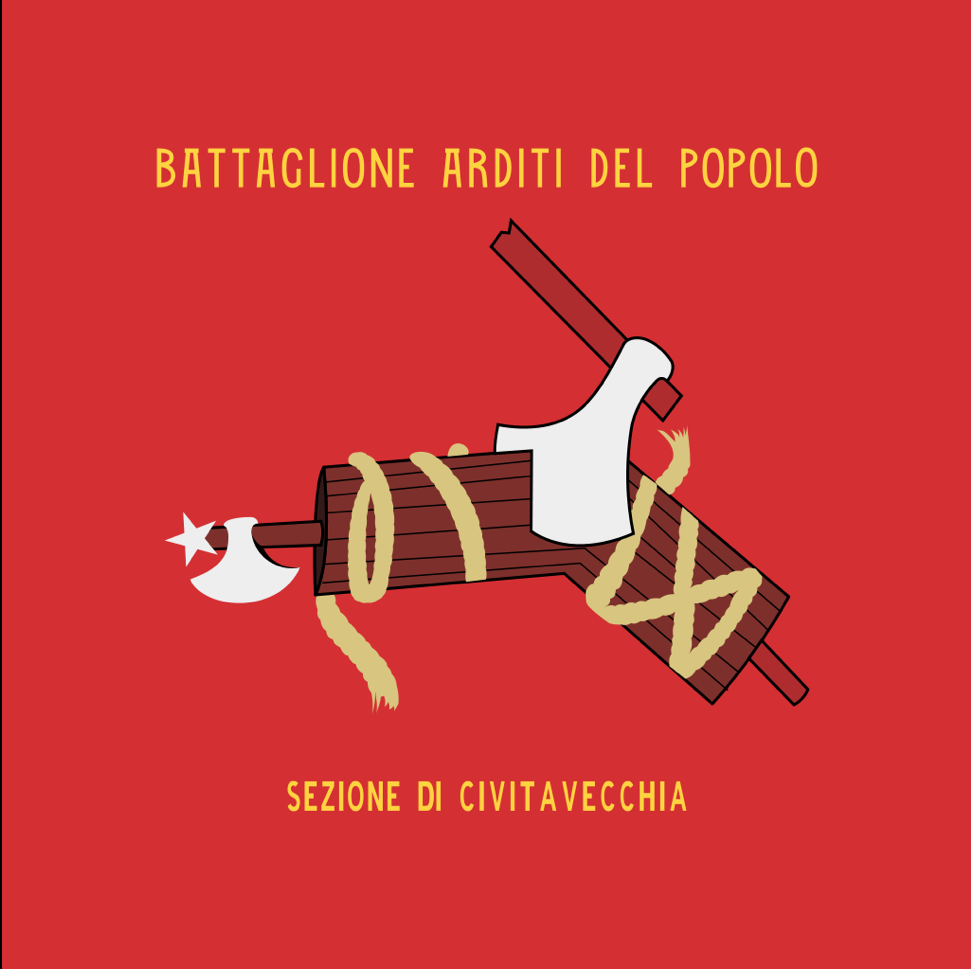
The other reason creeping in from the pages of the Resolution is concealing the deficiencies of the current EU and the ever-expanding inequality gap between the countries of the “core” and those of the periphery, particularly in Eastern Europe. It states that, after the end of WW2, “some European countries were able to rebuild and embark on a process of reconciliation, while other European countries remained under dictatorships – some under direct Soviet occupation or influence – for half a century and continued to be deprived of freedom, sovereignty, dignity, human rights and socio-economic development” (my emphasis). This statement, aside from being a wrong and sweeping generalization, overlooks the fact that many of these countries, Russia included, went from being severely underdeveloped agricultural societies to industrialized countries with developed infrastructure and strong workers’ rights, not to mention a higher level of women’s emancipation than most countries of the capitalist center. It also intentionally simplifies the causes of contemporary unequal development within the EU, omitting important facts, such as the history of predatory privatizations during the so-called “post-socialist transition” period, and the very structure of the Union that ensures the perpetuation of inequality.
On the other hand, equating Nazism and fascism with communism, while resounding the US president’s reflections on “nice people on both sides” during conflicts between racists and antifascists in Charlottesville in 2017, enables European establishment to delegitimise and discredit its only true and viable opponent – the progressive Left.
The fact that this Resolution is a joint effort of the right-wing and neoliberal parties in the European Parliament shows that its declarations of concern over “all forms of Holocaust denial, including the trivialization and minimisation of the crimes perpetrated by the Nazis and their collaborators”, are just that. Rewriting the past of WW2, in which leftist antifascist movements, as well as the Soviet army, were the backbone of fight against Nazis all over Europe – in Italy, Greece, Yugoslavia, France – means rewriting the future of Europe, in which only the progressive and internationalist radical agenda can overcome the horrific results of neoliberal policies and the upsurge of neofascist forces that those policies enabled.
The “EP resolution on remembrance” aims at maintaining the status quo that brought the continent and the planet on the verge of collapse. We have to fight it!
A touch of irony for the end. One of the most cynical, though often unnoticed facets of the resolution is its condemnation of “totalitarian regimes”, in the age of surveillance capitalism (term created by Shoshana Zuboff). Totalitarianism implies total control over all aspects of citizens’ lives, and both Hitler and Stalin could only have dreamt of the means that surveillance capitalism offers to states, as well as big businesses, to control the most intimate desires and actions of entire populations.
Milena Repaji is a historian and member of DSC Belgrade 1
Photo on top: Socialist’s demonstration on Mai 1, 1912 at Union Square, New York City
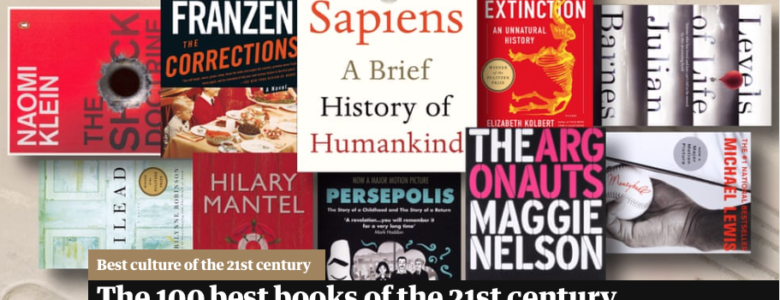
"Adults in the room" in the context of our crises
Yanis Varoufakis’ book and some other nominees on the Guardian’s list of the 100 best books of the 21st century highlight the multiple and interconnected crises we are facing.
The Guardian just recently released their list of the 100 best books published in the 21st century. “Adults in the Room“ by DiEM25 co-founder Yanis Varoufakis which has been described as “one of the best political memoirs ever written” was listed in position 86.
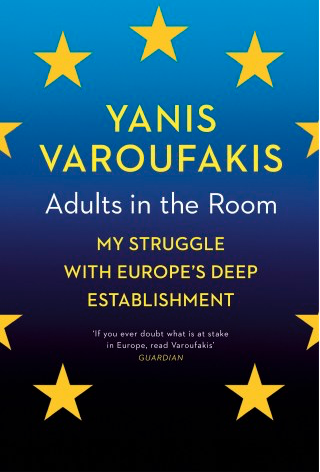
Expectedly, we made some noise on this but not only because of Yanis’ name. According to The Guardian, he describes “how the system works – as a result, the book is a telling description of modern power”. If you agree with his negotiation strategy as finance minister or not: the book reveals how policy making, power and an absence of democracy are intertwined in the bureaucracy of the European Union to result in feeding both, a dead-end casino capitalism and devastating neoliberal policies.
But Varoufakis’ book is part of a bigger picture. In the list, we also see „The Age of Surveillance Capitalism“ by Shoshana Zuboff (#72) and “The Shock Doctrine” by Naomi Klein, member of DiEM25’s Advisory Panel (#18). The former describes in a comprehensive manner how personal data have entered the market dynamic and were exploited and monopolized by tech mega-corporations. The latter deals with how capitalism finds its ways to make profit out of disasters, shocks and wars.
The three books converge on revealing the multi-level crises of today: How capitalism will eat democracy, unless we speak up, as Yanis Varoufakis put it in a speech at the TED Global Conference in December 2015.
And that brings us to book #44: Hope in the Dark by Rebecca Solnit, where the reader “finds optimism in political activism and its ability to change the world”.
It is for this very reason that activists collectively work under the DiEM25 umbrella: to democratize Europe. Join us!
Aris Telonis is a member of DiEM25 and coordinator of the NYC1 Collective.

Naomi Klein supports MeRA25 MPs on the day Greece's Parliament ratifies oil and gas extraction deals
This morning, in Greece’s Parliament, MeRA25’s parliamentarians are staging an all-out struggle against the ratification of disastrous contracts between the previous (SYRIZA) government and multinational oil companies. The contracts to be ratified give the companies (including Exxon-Mobil and Total) full licence to drill, extract and exploit gas and oil reserves across Greece’s beautiful seas (Ionian, Aegean, Cretan and Libyan).
Unfortunately, every other Greek party has awarded MeRA25 the monopoly over the programmatic, wholesale opposition to the exploitation of new fossil fuel sources.
- The New Democracy government is, today, walking happily the path paved by the previous SYRIZA administration, who signed the original contracts
- SYRIZA is now voting against ratification despite the fact that the ink has not yet dried on the contracts signed by their ministers (they are voting against on the pretext that they oppose the impending privatisation of the only Greek company involved, despite the sad fact that it was SYRIZA ministers who started the ball rolling toward its privatisation!)
The Communist Party is also voting against on the grounds that they oppose all drilling by foreign multinationals, even though they are in principle in favour of oil and gas exploitation (as if everything would be fine if climate catastrophe were accelerated by state-owned companies!)
This monopoly against all new fossil fuel exploitation that other parties are gifting us with is a monopoly that we wish we did not have. We would be thrilled if other parties joined us in condemning drilling for oil and gas and in supporting the green transition that humanity so desperately needs, rather than pretending to be ecologically minded while supporting new fossil fuels. Alas, they refuse to do so.
Thankfully there are other voices that merge with ours – with the voice of MeRA25 and DiEM25. They are the children who strike worldwide every Friday, demanding their future back. And there are the voices of older people – activists, scientists and influential intellectuals across the globe.
Like that of NAOMI KLEIN who, today, is sending a message of support to our MeRA25 parliamentarians. Here is Naomi’s message:
Greece is on the front lines of accelerating climate breakdown. Your farmers are suffering under prolonged drought and you have lost too many lives to wildfires. As a coastal nation, you are also coping with the reality that more and more people beyond your borders have been forced to abandon their beloved homelands because those lands have been made unlivable by drought and conflicts intensified by water scarcity.
In this context of rapidly escalating suffering, it is beyond madness for you to literally pour fuel on these planetary flames by ratifying contracts with four oil companies to extract yet more fossil fuels from your beautiful seas, endangering fragile ecosystems on both a local and planetary scale.
I stand with MeRA25 as the only party forcefully opposing this reckless legislation. I urge all legislators of good conscience to listen to the science — and listen to the children around the world striking for their futures – and join MeRA25 in drawing the line. Because our house is on fire and we have a very small window to put out the flames.
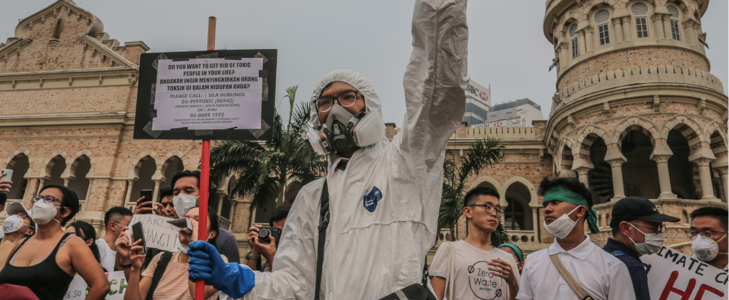
Also in Indonesia: rain forests are burning
While in Brazil massive wildfires are raging in the Amazonia, on the other side of the tropics, the Indonesian rain forest is also burning. As of 14 September, there were ten hotspots in the Malaysian states of Sabah and Sarawak, compared to 627 in Kalimantan (Borneo), according to the ASEAN specialised meteorological centre.
Indonesia’s national disaster agency says, there were 328,724 hectares of land burnt this year from January to August alone. As the BBC reports, “many farmers take advantage of the conditions to clear vegetation for palm oil, pulp and paper plantations using the slash-and-burn method. They often spin out of control and spread into protected forested areas”. And just like in Amazonia, this is not a local issue but a danger for everyone: our planet’s green lungs are being destroyed. “Plantation fires are becoming a global crisis“, Bloomberg says. “They need a global response.“
Nearly 1,500 schools have been closed since September 18
These wildfires have been a yearly occurrence for the past three decades. It has become such a normal phenomenon, that, meanwhile, haze is perceived as one of our seasons. Currently, the smog spreads from Borneo to Singapore and Malaysia. The air is terribly unhealthy. On September 23, Malay Mail quoted respiratory specialist Dr Helmy Haja Mydin from Pantai Hospital Kuala Lumpur: “The health risks associated with particulate matter of less than 2.5 microns in diameter (PM 2.5) are well known. These are capable of penetrating deep into lung passageways and entering the bloodstream leading to effects o n the heart, brain and lungs.“ In Malaysia 1,484 schools have been closed on September 18, “due to the worsening haze situation in the country“, Malayan New Straits Times reported.
This is literally affecting our way of life. And besides hazes, there are a multitude of environmental issues over here. Just think of illegal waste exports from Europe which make Malaysia and the Philippines the garbage dumps of Western industrial nations. We have to stop resource exploitation. A system change is needed.

On Saturday, September 21, hundreds of Malaysians joined the Global Climate Strike in their capital Kuala Lumpur. They demanded urgent governmental action against the haze and the climate crisis. Prominent activist Hishamuddin Rais addressed the crowd: “It does not matter whether it is the old or new government, you have the right to overthrow whichever government who isn’t concerned about the climate!”
Malaysia could easily replace fossil fuels with solar energy
Currently, only 2% of Malaysia’s electricity is generated by renewable energy sources, as the nation’s energy generation is still highly dependent on limited fossil fuel resources such as oil, coal and natural gas. Paradoxically, South East Asia is at the same time one of the world’s biggest producers of solar panels. “If we equip our roofs with solar, we can potentially produce more than the total electricity generated in Malaysia,“ Malaysia’s Energy, Science, Technology, Environment and Climate Change Minister Yeo Bee Yin said. She sustained that there are over 4.12 million buildings with solar rooftop potential in the peninsula. So why don’t we use this potential?
But you cannot leave your friends in the Global South alone. We are the first to bear the brunt of the climate catastrophe. Our problems are also caused by the rest of the world, mainly by industrialised nations. And we all suffer from it. Therefore, it’s more imperative than ever to establish transnational cooperation.
Malaysia and Southeast Asia/ASEAN must have their own Green New Deal and join others in their efforts. As Yanis Varoufakis and David Adler wrote in The Guardian: “It’s time for nations to unite around an International Green New Deal“.
Jacob Lim is a Malaysian student living in Kuala Lumpur and member of the Thematic DSC Peace and International Policy
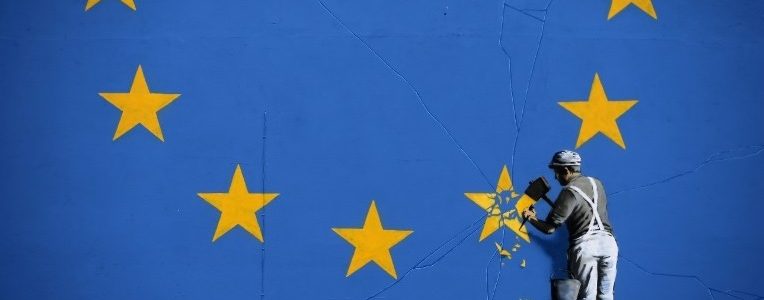
Our European Way of Life should be about solidarity and shared prosperity – not racism and xenophobia
Back in 2016, when our movement was first created, we warned of the increasingly authoritarian, isolationist and right-wing path that the European Union was on. We were often brushed-off and hysterical Euro-sceptics.
Now, three years later, the European Commission has established a new portfolio, combining Security and Migration, under the title of “Protecting our European Way of Life”. To add insult to injury, the post has been given to former spokesperson and soon-to-be Vice-President of the Commission Margaritis Schinas, a favourite of Greece’s new conservative Prime Minister, Kyriakos Mitsotakis. Let us briefly unpack this:
- Migration in the EU is to be dealt with as a security issue playing into the hands of of those governments blocking a humanitarian resolution to the EU’s migration policy failure and of the far-right that pushes the European political discussion into an increasingly xenophobic direction
- Immigrants and refugees are implicitly assumed to be a threat to “Our European Way of Life” (whatever that is…)
- Schinas, who will be in charge of this portfolio, is a member of New Democracy, the governing party inGreece: we can only assume that this government presented the new Commission with a great source of inspiration when it added “migration” to the portfolio of the Ministry for Citizen Protection earlier this summer – a move they followed-up with an immediate wave of violence and persecution against refugees and migrants in the country
The so-called “migration crisis” is nothing but a crisis of European institutions, a failure to agree and implement much-needed policy reforms, hijacked by politicians who wish to deny refugees their right to asylum, hiding behind what they call “the national interest”, and who are tragically unfit or cynically unwilling to properly resolve a situation that is causing much suffering for hundreds of thousands of people fleeing poverty and war. To these people, the unnecessarily inhumane treatment that they receive at the hands of Europeans is their perception of “our European way of life”. We would do well to reflect on that perception: it is how we treat the most vulnerable members of our society that truly defines the quality of our democracies.
Along the same lines, we must seriously consider why so many of our fellow citizens reject refugees and migrants in their communities. It should perhaps come as no surprise following a decade of austerity – a decade of being told that the state cannot finance hospitals, schools, or roads. If we supposedly cannot take care of the citizens we already have, it would surely be folly to receive more. The truth, however, is not that the EU suffers from a lack of funds, but from an elitist, and completely unequal allocation of them. Banks are bailed out, concentration camps are subsidised in countries which are not even members of the EU, authoritarian governments in Turkey and Libya are bribed: all in order to preserve “our European Way of Life”.
In DiEM25, we do not limit ourselves to criticism, but offer constructive alternatives. Our Green New Deal for Europe is the combination of environmental, social and financial policies that Europe needs to implement to put people before the big corporate and short-sighted nationalist interests that it has served so far. Our proposal for a European harmonisation of migration policy, based on the respect for human rights, is another example of such constructive alternatives that we and other bright examples of European solidarity, from Sea Watch 3 captain Carola Rackete to Barcola Mayor Ada Colau, champion.
The pursuit of a Europe of solidarity, shared prosperity and peace for all: that should be “our European way of life”.

The Great Redefining
So far, the Left has proven unable to create a post-capitalist narrative. But the rise of fascism and climate crisis could offer an opportunity to reinstate it to its proper place: the forefront of the fight for a world of equality, solidarity and peace.
The financial crisis of 2008 and the inability of progressive political actors (Left, Greens, Liberals) to offer a persuasive alternative to capitalism’s destruction of human societies and the environment, has led the Left to a crisis similar to the one that followed the fall of the Soviet Union in ’91.
This new 21st century crisis is not existential, like the previous, but Gramscian – in that it is a crisis that comes about when the old dies and the new cannot yet be born. What died in 2008, however, was not the Left, but its sworn enemy: capitalism.
Capitalism, even though dead, continues to live
The bursting of the 2008 bubble proved that a deregulated market does not lead us to the promised land where the Invisible Hand of the Market is God, but that instead the economy remained what it always has been: dependent on the state and taxpayers. This failure should have been the battlefield where proletarians won the “final victory”, but it was not to be.
The post-Soviet Left, weakened as it was in 2008 – either trapped in the terminology of the failed Soviet experiment or surrendered to the powers of the market and conciliated with the idea of “capitalism with a human face” – did not have the tools or the credibility to forge a truly progressive narrative for a post-crisis world. Thus, capitalism, even though dead, continues to live. We are in the age of zombie-capitalism, which has also given rise to another walking corpse: fascism.
The Left’s inability to offer a vision
In Greece we experienced the final episode of this failure of the Left first-hand. The SYRIZA government, despite Yanis Varoufakis’ plan and the support of not only the majority of the Greek people, but of many of our fellow European citizens, chose to succumb days before a historic moment not just for Greece and the peoples of Europe, but for the history of the global Left. Instead, the Radical Left government chose to prove, once again, that there is no alternative to the Establishment – not matter how failed and irrational it might be.
One could argue that the Left’s inability to offer a vision of a post-capitalist world is indicative of unhealthy self-identification as capitalism’s adversary: a de facto underdog. If capitalism doesn’t exist, neither does the Left.
A (not so) new crisis: climate catastrophe
Simultaneously, a major political, economic, social and environmental drama is taking place across the planet: climate catastrophe. Beyond the “usual” stories of pollution (from big industry, industrial farming, transport, energy production), these past few weeks, huge regions of the Amazon and the forests of the Arctic Circle (from Siberia to Alaska) are in flames. In general, humanity is confronted by extreme weather phenomena at an ever increasing frequency, and they are submitting our societies and economies to never-seen-before pressures.
Climate catastrophe will make entire regions of the planet unliveable, leading economies to collapse and huge populations to migration. Our current migration policies within the EU (from Italy and the Ukraine to Greece) are leading us to increasingly misanthropic measures. How long before “extreme pressures” lead our increasingly authoritarian governments to install machine-guns on the borders and cut down the masses seeking to escape the hell that we have made of our planet? If we do not stop the continuous acceleration of climate change and the destruction of the planet’s ecosystems, we will wake up one day in a world where humanity will already have lost: first ethically, and then biologically.
A new opportunity: the Green New Deal for Europe
It is in these gruelling conditions that we find the Left in a state of Gramscian crisis, the resolution of which might be able to reinstate it to its proper place: the epicentre of the fight against capitalism and fascism. This will depend on our ability to recognise the needs and interests of the people of the world and to rally, with all those who agree, around a common plan for their defence. That plan is the Green New Deal for Europe.
The Greens will not save us: they either cannot or do not intend to. Split between factions of the original Green movement such as the German Greens (in bed with the automotive industry), neoliberal factions which insist on depressingly inadequate measures (ban straws!) which they then present as victories, or well-meaning Greens that nonetheless band together with the two aforementioned factions for political gain. No, the Greens will not save us.
Extractive capitalism has brought humanity to the edge. Now is the time for the combination of the environmental action of the Greens, the economic and social analysis of the Left, and the philosophy of true Liberals, to create an alliance which will set the foundation for that which the Left has fought for centuries: a world of solidarity and equality.
Our battle starts with the European Union
Climate catastrophe is offering the terrifying and yet unique opportunity of a global existential crisis, which creates the challenge of a world system-change that unites all of the worlds’ people. Leftists who have forgotten the internationalism that characterised our movements would do well to remember it and abandon the doomed idea of “socialism in one country”, in a world that is intertwined and interdependent. Or have we forgotten also that “a nation cannot become free and at the same time continue to oppress other nations”?
This battle for us Europeans starts with the European Union and the wrestling away of its institutions from the hands of the big interests that currently control them.
DiEM25, the pan-European movement for the democratisation of Europe, has exactly this goal. By uniting Europeans around a common policy programme for Europe, it is writing history. MeRA25 is the electoral expression of this project in Greece, with similar parties being founded around Europe.
Our mission is a difficult one, but no one wrote history by aiming at the easy solutions. We write history when we do what we think is right and just. Change is hard, but not impossible. What is impossible is the idea that Europe and the global financial system can stay the same and survive.
The original piece was published on Efsyn.gr (26/08/19) under the title “Ο Μεγάλος Επαναπροσδιορισμός”.
On September 2, the Green New Deal for Europe published its policy paper “Blueprint for Europe’s just transition“ which is open for public consultation until September 16.
Photo above: Milan, Piazza Affari, by Simone Pellegrini
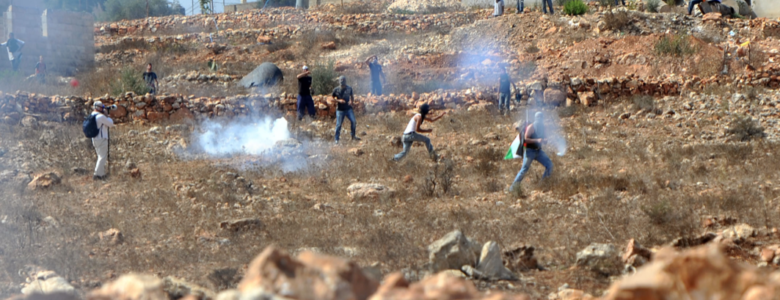
Neverending Six Days War – what can DiEM25 do?
The Six Day War has lasted nearly 53 years, as the most recent and the longest of the Israeli-Arab wars. Oft-reported military attacks on unarmed civilians, a crushing blockade for Gaza; house-demolitions leaving ruins: all these result from the non-enforcement of existing international law forbidding military conquest and annexation of territory. (In the Mediterranean today, both Israel and Turkey’s army in Cyprus sustain old invasions.)
There has always been a solution
The ruins may often be governed un-democratically by Palestinian political factions, divided under occupation. Yet, that does not alter the fact that military occupations create ruins. UN Security Council (UNSC) Resolution 242, and the more detailed proposals derived from it, clearly represent the cornerstone for ending the bloodshed and applying the Geneva Convention to the Middle East. This famous yet often forgotten resolution 242 was adopted unanimously by the UNSC on November 22, 1967, in the aftermath of the Six-Day War. It was adopted under Chapter VI of the UN Charter and declared the “inadmissibility of acquisition of territory by war”, urging the withdrawal of Israeli armed forces from territories occupied in 1967; the end of illegal settler activities, and ”a just settlement of the refugee problem” (implying Resolution 194: either ”refugee right of return” or compensation paid by Israel, or a variation of both.)
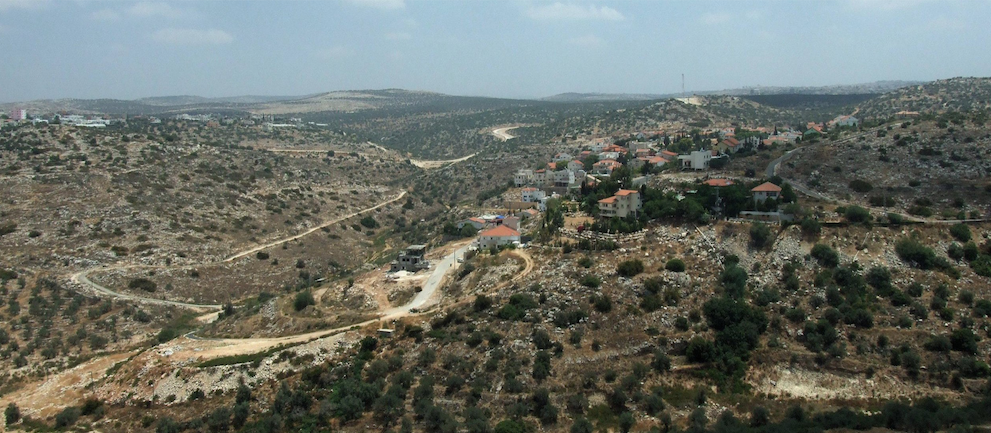
Photo above: Palestinian protesters clashing with Israeli forces near Nabi Salih, 2011
This world knows many intractable conflicts, take India-Pakistan. Israel-Palestine, by comparison, is not irreversible, and neither are the disastrous Oslo 2 agreements, in which the US and Israel buried the historic UN Security Council Resolution 242 and further limited the freedoms of ordinary Palestinians. 53 uninterrupted years of occupation have passed by with Gaza, the West Bank and East Jerusalem serving as trenches in a forever Six Day War, thwarting the peace-efforts of exceptional figures, like late Egyptian president Anwar Sadat who offered peace in 1971, or like Israeli intellectual Yeshayahu Leibowitz.
Overwhelming support by UN ambassadors
While Israel’s founders originally defined Zionism as a mission to modernize and “westernize” a Jewish refugee population, today the irrationality of the war is laid bare, as religious fanatics on settlements in 2019 compare themselves to the Biblical first settlers of Canaan, with uncanny support from the Evangelical Christian lobby. Much of the skirmish and human rights violations still flare along the 1967 faultlines of this conflict, imperilling the future hopes of Palestinians and Israelis. UNSC 242 has been balked at and opposed by a succession of US Presidents and Secretaries of State, only and precisely because it represents rationality and peace in part of the Middle East. In contradistinction, an overwhelming majority of UN ambassadors has been voting in favour of the plan since the early 1970s.
Make the historic „paper victories“ count today!
The road ahead necessitates a politically potent stance on Israel-Palestine, to press hard for making the historic “paper victories” count today, and to have a less bureaucratic UN without the unlimited veto-rights for Washington.
DiEM25 can call for the European market to label imported products that were manufactured in illegal settlements, identifying these so as to inform the consumer of what was made in tandem with violation in international law. DiEM25 can demand that the EU must sanction member-states for ignoring their own UN-ambassadors’ support for the vital UNSC Resolutions.
DiEM25 must call for some form of limitation on the US veto-right that has cleared the path for the most reactionary elements in Israel while we at the same time reach out to the most progressive elements in Israel, such as the Palestinian-and-Jewish Israeli communist party Hadash, the ”Democratic Front for Peace and Equality” as well as Palestinian comrades.
A sane proposal to ameliorate the terrors of this conflict is as old as 53 years of occupation. Let’s use it, instead of waving flags and moralizing.
Arturo Desimone is an Aruban-Argentinean writer and visual artist, currently based between Argentina and the Netherlands (www.arturoblogito.wordpress.com). He’s also member of the Thematic DSC Peace and International Policy 1.
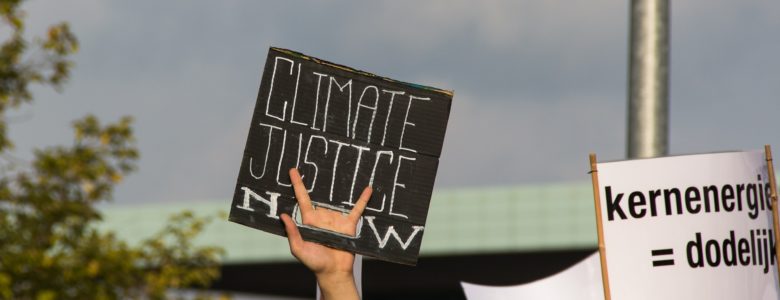
The Green New Deal for Europe paves the way for global justice
The climate crisis is not the product of human nature, or even of human progress tout court. In fact, concentrating solar power technology was used in 1782 by Lavoisier. The photoelectric effect was discovered in 1839. And photochemistry was a budding and rapidly-advancing science at the end of the 19th century. People invented solar printing presses and irrigation systems, solar cooking ovens and solar industrial furnaces.
We could have had a solar society and avoided this crisis entirely. But we didn’t because fossil fuels were cheaper. And, more importantly, because while the sun shines for everybody equally, mineral resources can be appropriated and hoarded and their possession turned into rents.
Let’s say it as it is: this a crisis born out of capitalism, of its overexploitation of nature and desire for short-term gains and infinite expansion. Any solution worth its salt should take these origins into account.
But that is not enough: studying cancer has taught me to be wary also of feedback mechanisms and the co-optation of healthy systems to support the disease. Likewise, any meaningful solution to the climate crisis should be grounded in the understanding that the problem cannot be solved in isolation from other crises originated from the same cause. The crisis of unequal power between capital and democracy that has led to austerity in Europe. The crisis of loss of authority of sovereign governments through commercial treaties in the Global South. The global crisis in democratic legitimation. The erosion of worker’s rights worldwide. The over-extraction of resources. The destruction of our natural habitats and dispossession of indigenous peoples.
A Green New Deal should ensure that no one is left behind
Any solution deserving to be called a “Green New Deal” should also ensure that no one is left behind—not the workers trapped in obsolete industries, not vulnerable citizens who rely on public services, not people in the Global South in whose lands lay the minerals necessary for a full “green” transformation of Europe’s energy systems.

Participating in the solarpunk community as an author with the Commando Jugendstil collective, I have had the chance to play with some of the solutions circulated by different experts, trying to see how they could be gamed and twisted, pushing them to extreme conclusions. And I have become convinced that any solution that does not imply a full restructuring and democratisation of the systems of production and distribution of energy, food and goods is not a real solution, nor guarantees a future of dignified, fulfilling life for humankind.
The climate crisis is already causing suffering across the Global South
The climate crisis we are already experiencing poses an existential risk to most human societies and is already causing death, dispossession and suffering across the Global South. That a solution must be found and implemented quickly is beyond any doubt, but not all solutions are born equal. My training as a biomedical scientist has taught me that the most effective treatment for an ailment is that which targets its causes.
This is why, in 2018, I became involved in drafting DiEM25’s original Ecological Transition Green Paper. This was before Earth Strike was even founded, and as I became one of Earth Strike UK’s outreach officers in January 2019, I was uniquely positioned to participate in helping shape the Green New Deal for Europe’s Blueprint for Europe’s just transition which was launched on September 2, 2019.
The Green New Deal for Europe is a bold step in the right direction
Perhaps the Green New Deal for Europe (GNDE) is not the entirety of the solution, but with its green jobs guarantee and its drive towards the democratic control of energy and productive activities at a local scale it certainly is a bold step in the right direction. It could really change the narrative in Europe, kickstarting progress towards true climate justice for the Global South.
As an activist, appearing alongside eminent economists, researchers, leading climate activists and others, there has been both a rush and a trigger for impostor syndrome. But I don’t regret any of the lunch breaks and evenings spent poring over the drafts and debating with the other experts (to whom I apologise for not being an actual expert but only a well-read amateur). I hope that, as this project moves into the public consultation stage, many more EU citizens and activists will engage with it and will help shape it into a future we would all want to be part of.
Laura C Zanetti-Domingues is a UK outreach officer for Earth Strike, and a contributor to the GNDE’s policy paper “Blueprint for Europe’s just transition”
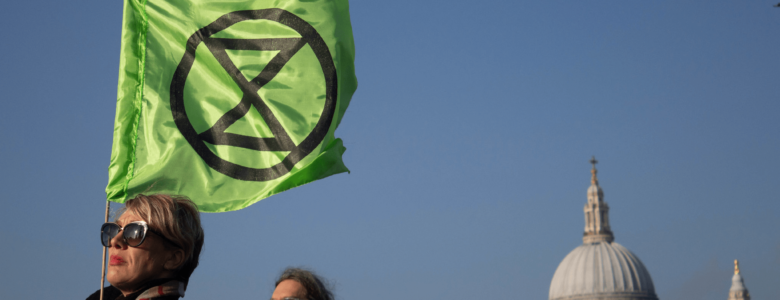
Join the Rebellion Week in October!
DiEM25’s National Collective in Germany (NC) calls on all DiEMers to join the Extinction Rebellion without Borders in October 2019, starting October 7 in the capitals of the world.
Recent climate research shows that we have to revise almost everything about the speed and the severity of the climate catastrophe. The climate catastrophe is no longer solely an environmental issue. With our current trajectory we are heading towards unprecedented heatwaves, mass starvation, economic break down and migration movements of hundreds of million people in Europe and throughout the world within 10 years. This is likely to lead to social collapse. DiEM25 is aware of the severity and urgency of the global situation. Our Green New Deal for Europe has been described as “the first response to climate change that is on the same scale as the problem itself”, but it is important we make citizens aware of it.
Extinction Rebellion is a great ally in the fight to stop climate catastrophe, as their engagement is opening the space for a serious political discussion on the environment. This discussion cannot be left to those who brought us to the brink of extinction: DiEM25 must be a strong political voice, as a movement and through its electoral wings, in order to promote that fight from the streets to where power lies. We are no longer asking or demanding: we are doing it ourselves. Rebellion must be followed by a plan for the day after: we will not allow climate-deniers to suggest we do not have it!
The time to act is now! Join the training events of your local XR chapter and familiarise yourselves with the GND! Practice solidarity with the rebels and become one of them. Their struggle is our struggle. If business as usual continues, the Europe we fight for will have no future at all. Come to Berlin on October 7, rebel for Life on Earth, and organize for a hopeful future for all!
Carpe DiEM, love & rage,
DiEM25 Germany National Collective
Credits: Extinction Rebellion-4 by Julia Hawkins (CC-BY)